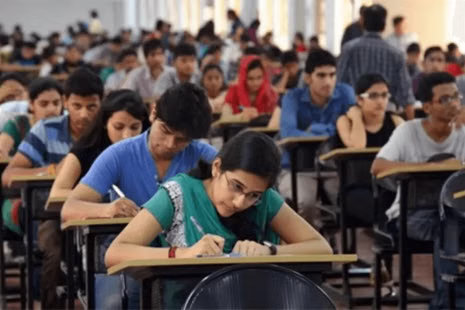Hyderabad : In a distressing turn of events, students in Telangana faced a harsh setback as they were denied entry to their Intermediate (Inter) examinations for arriving just a minute late. The incident has sparked outrage among parents, students, and the public, raising questions about the rigid enforcement of exam rules and the treatment of students during crucial academic assessments.
Reports indicate that several students, despite making diligent efforts to reach their examination centers on time, were met with unwavering enforcement of the stipulated reporting time. In adherence to exam regulations, students are required to be present at their designated examination venues well in advance of the scheduled start time. However, the strict interpretation of this rule resulted in the exclusion of students who arrived a mere minute past the designated time.
The repercussions of this stringent enforcement were felt deeply by the affected students, who had invested considerable time and effort in preparing for their examinations. For many, the denial of entry not only dashed their hopes of completing the exam but also cast a shadow of uncertainty over their academic futures.
Parents and guardians of the affected students have voiced their frustration and condemnation of what they perceive as an excessively harsh penalty for a minor infraction. They argue that the punitive measures imposed on students for such minor delays are disproportionate and fail to account for extenuating circumstances that may have contributed to their tardiness.
Furthermore, critics have raised concerns about the lack of flexibility and empathy exhibited by the authorities responsible for overseeing the examination process. They assert that while adherence to rules and regulations is important, there should also be room for discretion and understanding, especially in situations where students may encounter unforeseen obstacles beyond their control.
The incident has prompted calls for a review of examination protocols and a reevaluation of the approach to handling such situations in the future. Advocates emphasize the need for a more balanced and compassionate approach that prioritizes the welfare and academic aspirations of students while maintaining the integrity of the examination process.
As the outcry continues to reverberate, education officials and policymakers are urged to take heed of the concerns raised and institute measures to prevent similar incidents from occurring in subsequent examinations. It is imperative that the administration demonstrates a commitment to fairness, equity, and empathy in its interactions with students, ensuring that no student is unfairly penalized for circumstances beyond their control.








